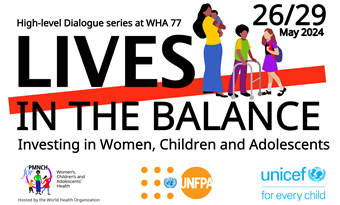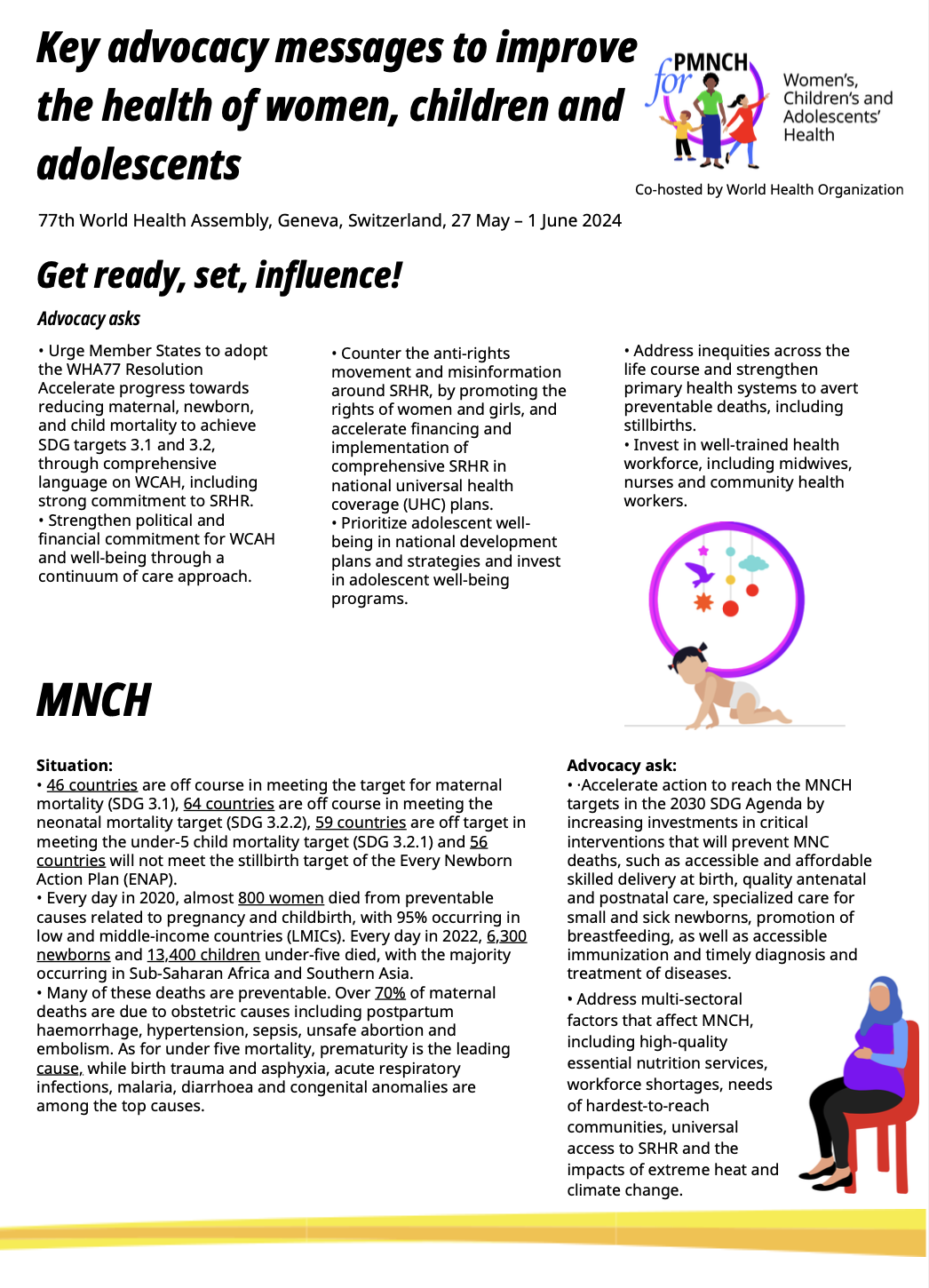
Watch recording
Co-hosts: Government of South Africa, UNICEF and UNFPA
This event aims at uniting government leaders, experts and stakeholders from civil society and the private sector to reflect on the immediate opportunities, gaps and challenges in advancing political commitments for the SDG goals/targets for maternal, newborn, child and adolescent health, including through the WHA and other multilateral processes.
This event will be co-hosted by the Government of South Africa on behalf of His Excellency President Cyril Ramaphosa, Chair of the Global Leaders Network for Women’s, Children’s and Adolescents’ Health. It is co-organized by PMNCH, hosted by WHO, and supported by UNICEF and UNFPA.
Background: Every day in 2020, almost 800 women died from preventable causes related to pregnancy and childbirth - one maternal death every two minutes (WHO). Evidence shows that this number increased in many countries throughout the COVID-19 pandemic (BMJ).Globally, almost one in six young women give birth before age 18 (UNICEF). In addition, of the 4.9 million under-five deaths in 2022, 2.3 million occurred during the first month of life, most of these from preventable causes (UN IGME). Of the almost 1.9 million stillbirths in 2021, Sub-Saharan Africa and central and southern Asia accounted for three-quarters (UN IGME). Currently, 64 countries are off course in meeting the 2030 SDG target for newborn mortality, and 59 countries similarly in meeting the under-5 child mortality target (UN IGME).
Global progress has been largely flat since 2015, bringing the massive gains of the Millennium Development Goal era to a shameful halt. The disparities are vast, with fragile states continuing to bear the biggest burden of preventable deaths among pregnant women, mothers and newborns, and stillbirths, solidifying the urgent need to scale-up access to quality MNH services as part of universal health coverage and primary health care. These challenges and the growing pushback against the rights of women and adolescents require the highest-level action especially in the most affected countries. Now more than ever, leadership is needed to refocus the world’s attention on the importance of reducing maternal, newborn, child and adolescent mortality, linking all three levels of leadership -- communities, ministers and heads of state -- in a concerted effort to galvanize greater impact.
Opportunity: The 77th World Health Assembly and the proposed Resolution on Maternal, Newborn and Child Health: Accelerating progress towards reducing maternal, newborn and child mortality in order to achieve Sustainable Development Goal targets 3.1 and 3.2 offers a prime opportunity for political leaders and other stakeholders to reflect on key opportunities, gaps and challenges in meeting the SDG targets. This 90-minute dialogue on the eve of the WHA will bring leaders at all levels together with experts and other stakeholders to discuss where and how greater progress can happen. Discussion will focus on rising threats to progress, including geopolitical conflicts and climate change, and how innovative partnerships, including the Global Leaders Network, can unlock new resources and interventions to speedily advance towards the 2030 targets for women, children and adolescents.
The role of the United Nations and other global and regional policy platforms will be highlighted in this process, including WHA resolutions where actions for women, children and adolescents can be called out.
Agenda

.png?sfvrsn=6d0e27cd_1)





